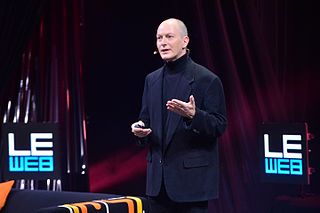A Quote by Steve Pavlina
Our brains are fairly powerful, but our conscious minds are still extremely limited in their ability to hold onto multiple simultaneous thoughts
Related Quotes
I think that human beings have gotten as far as we've gotten because of our adaptability, our ability to adapt, and our ability to dovetail our technologies - our brains to our tools. With the Industrial Revolution, we transcended the limits of our muscles. With the digital revolution, we transcend the limits of our minds.
We all know that as we form thoughts, they form deep channels in our minds and in our brains. Chronic pain is an example. If you burn yourself, you pull your hand away. But if you're still in pain in six months' or six years' time, it's because these circuits are producing pain that's no longer helping you.
An entertainment is something which distracts us or diverts us from the routine of daily life. It makes us for the time being forget our cares and worries; it interrupts our conscious thoughts and habits, rests our nerves and minds, though it may incidentally exhaust our bodies. Art, on the other hand, though it may divert us from the normal routine of our existence, causes us in some way or other to become conscious of that existence.
Many quantum physics are realizing or hypothesizing that consciousness is not a byproduct of evolution as has been suggested. Or for that matter, an expression of our brains, although it expresses itself through our brains. But consciousness is the common ground of existence that ultimately differentiates into space, time, energy, information and matter. And the same consciousness is responsible for our thoughts, for our emotions and feelings, for our behaviors, for our personal relationships, for our social interactions, for the environments that we find ourselves in, and for our biology.
The void holds a form of energy moving at an inconceivably high rate of vibration, and that void is filled with a form of power/energy which adapts itself to the nature of the thoughts we hold in our minds; and influences us, in natural ways, to transmute our thoughts into their physical equivalent.
ISIS is a radical jihadist group that is increasingly sophisticated in its ability, for example, to radicalize American citizens, in its inability to exploit loopholes in our legal immigration system, in its ability to capture and hold territory in the Middle East, as I outlined earlier, in multiple countries.

































